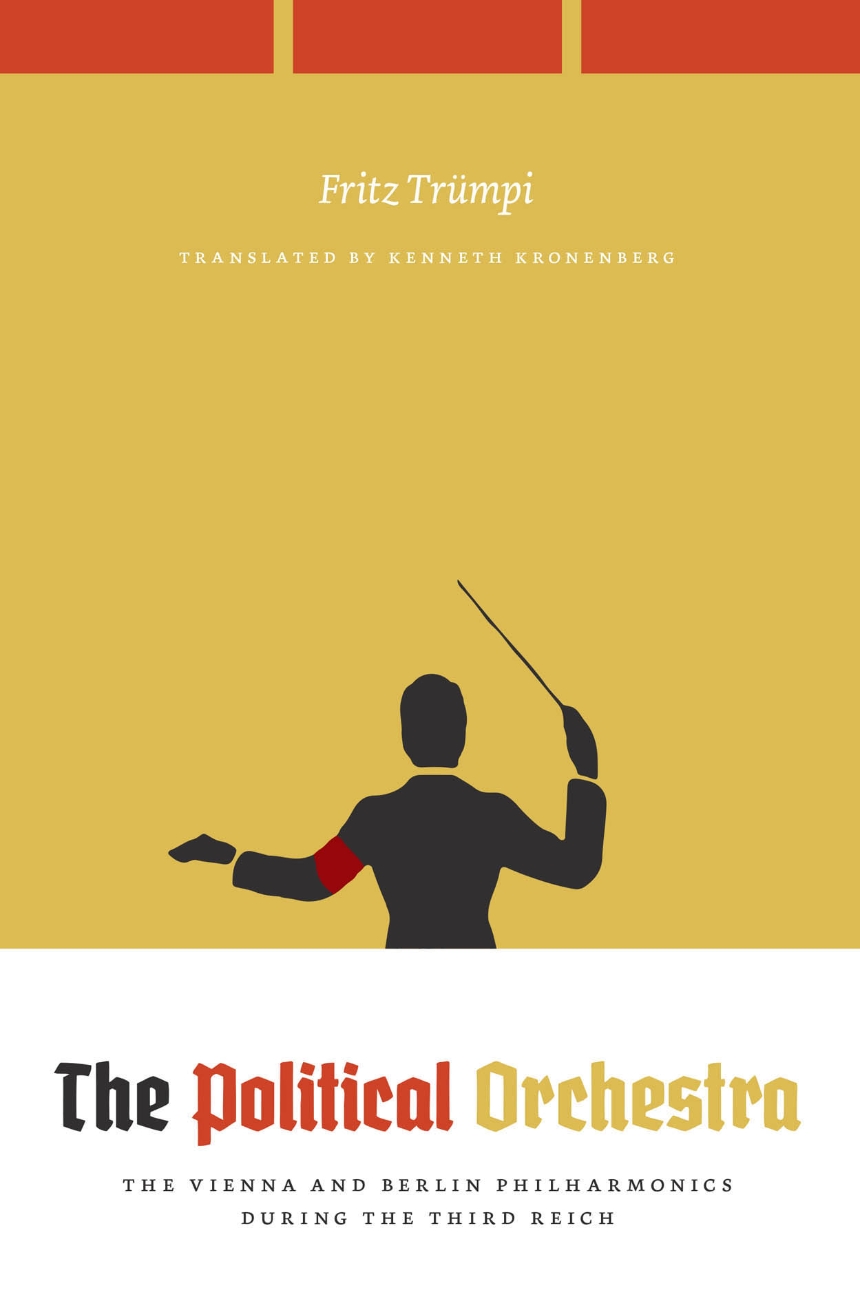The Political Orchestra
The Vienna and Berlin Philharmonics during the Third Reich
9780226760261
9780226251394
9780226251424
The Political Orchestra
The Vienna and Berlin Philharmonics during the Third Reich
This is a groundbreaking study of the prestigious Berlin and Vienna Philharmonics during the Third Reich. Making extensive use of archival material, including some discussed here for the first time, Fritz Trümpi offers new insight into the orchestras’ place in the larger political constellation.
Trümpi looks first at the decades preceding National Socialist rule, when the competing orchestras, whose rivalry mirrored a larger rivalry between Berlin and Vienna, were called on to represent “superior” Austro-German music and were integrated into the administrative and social structures of their respective cities—becoming vulnerable to political manipulation in the process. He then turns to the Nazi period, when the orchestras came to play a major role in cultural policies. As he shows, the philharmonics, in their own unique ways, strengthened National Socialist dominance through their showcasing of Germanic culture in the mass media, performances for troops and the general public, and fictional representations in literature and film. Accompanying these propaganda efforts was an increasing politicization of the orchestras, which ranged from the dismissal of Jewish members to the programming of ideologically appropriate repertory—all in the name of racial and cultural purity.
Richly documented and refreshingly nuanced, The Political Orchestra is a bold exploration of the ties between music and politics under fascism.
Trümpi looks first at the decades preceding National Socialist rule, when the competing orchestras, whose rivalry mirrored a larger rivalry between Berlin and Vienna, were called on to represent “superior” Austro-German music and were integrated into the administrative and social structures of their respective cities—becoming vulnerable to political manipulation in the process. He then turns to the Nazi period, when the orchestras came to play a major role in cultural policies. As he shows, the philharmonics, in their own unique ways, strengthened National Socialist dominance through their showcasing of Germanic culture in the mass media, performances for troops and the general public, and fictional representations in literature and film. Accompanying these propaganda efforts was an increasing politicization of the orchestras, which ranged from the dismissal of Jewish members to the programming of ideologically appropriate repertory—all in the name of racial and cultural purity.
Richly documented and refreshingly nuanced, The Political Orchestra is a bold exploration of the ties between music and politics under fascism.
344 pages | 9 halftones, 17 line drawings, 5 tables | 6 x 9 | © 2016
History: European History
Music: General Music
Reviews
Table of Contents
Two Cities, Two Orchestras: An Introduction
1 “Innovation” versus “Tradition”: The Berlin and Vienna Philharmonics at the End of the Long Nineteenth Century
2 Differing Responses to Increased State Influence: The Orchestras during the Republics (1918–1933)
3 Continuous Radicalization under Austrofascism and National Socialism
4 Dependence and Protection under National Socialism
5 The Orchestras’ Multifaceted Media Presence
6 Repertoire and Politicization: National Socialism and the Politics of Programming
Summary and Conclusion: “A Rivalry Like That between the Berliners and the Viennese Will Always Exist”
Acknowledgments
Appendix: Repertoire—Graphs and Commentary
Notes
Bibliography
Index
1 “Innovation” versus “Tradition”: The Berlin and Vienna Philharmonics at the End of the Long Nineteenth Century
2 Differing Responses to Increased State Influence: The Orchestras during the Republics (1918–1933)
3 Continuous Radicalization under Austrofascism and National Socialism
4 Dependence and Protection under National Socialism
5 The Orchestras’ Multifaceted Media Presence
6 Repertoire and Politicization: National Socialism and the Politics of Programming
Summary and Conclusion: “A Rivalry Like That between the Berliners and the Viennese Will Always Exist”
Acknowledgments
Appendix: Repertoire—Graphs and Commentary
Notes
Bibliography
Index
